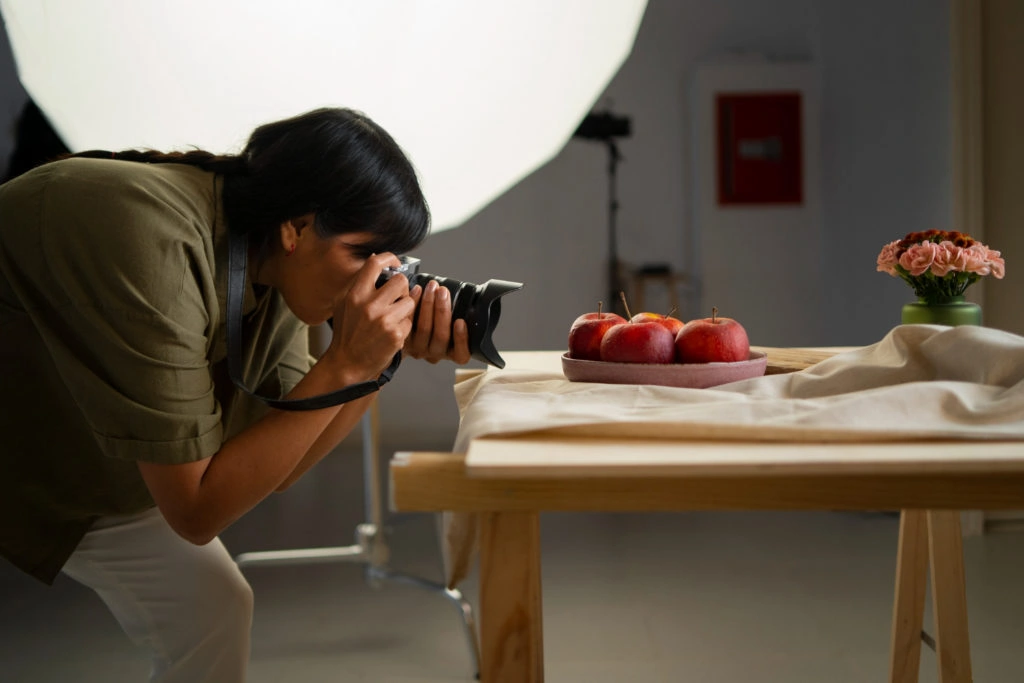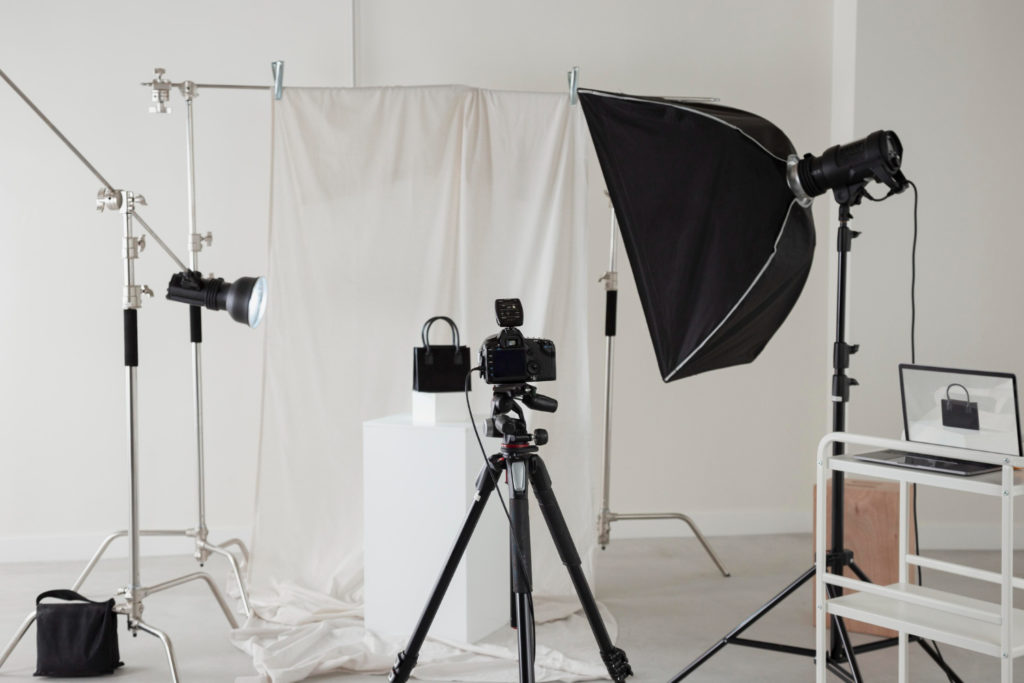Picture this: You own a successful, thriving business based on your passion for photography.
Starting a photography business can be an exciting and rewarding endeavor, but it requires careful planning and preparation. In this guide, we’ll cover everything you need to know about how to start a photography business, including equipment, market research, branding, finances, and more.

Write a Business Plan
Writing a comprehensive business plan is crucial to starting a photography business successfully. Your business plan should include a sales and marketing strategy, operational logistics, and a management structure.
You can gain valuable insights into our target audience and competition by conducting customer and market analysis. Addressing the startup costs associated with purchasing photography equipment in your plan is important.
Also, choosing a specific market or niche within the photography industry will help you attract clients. Lastly, developing a pricing strategy that reflects the value of your skills and services is crucial for long-term success in photography.
Create a Business Entity
Choosing the right business structure can greatly impact your photography endeavor. A Limited Liability Company (LLC) is a popular choice as it offers legal protection without the complexities of a corporation.
This step involves deciding on an appropriate name for your entity and confirming that it’s not trademarked. However, creating an LLC isn’t your only option; operating as a sole proprietor could be suitable, too.
No matter what you decide, acquire all necessary licenses and permits, such as a photography license, to operate legally in your area. Setting up your business entity safeguards both you and your work—it’s vital in establishing yourself professionally in the photography industry.
Calculate Initial Costs
Starting a photography business requires careful budgeting and calculation of initial costs. You need to consider various expenses, such as camera equipment, memory cards, external drives, and a laptop for photo editing.
The initial investment can range from $10,000 to $15,000, depending on the quality and scale of your business. Camera gear alone can be quite expensive, with top-notch cameras costing several thousand dollars and lenses ranging up to $1,000 each.
Having at least two cameras is advisable, which can add up to around $2,000 each. Remember that these figures are estimates and may vary based on individual choices and needs.
Understand Legal Requirements
As you start your photography business, it’s crucial to understand the legal requirements involved. While these requirements can vary from state to state, there are general considerations that apply.
Firstly, you must know copyright laws and how they affect your work as a professional photographer. This includes understanding intellectual property rights and protecting your photographs from unauthorized use.
Secondly, consider using legal forms and contracts for client agreements, releases, and licensing requirements for certain types of photography services. Finally, register your business and comply with any necessary permits or regulations to operate legally.
Determine Your Equipment Needs

Investing in proper equipment is a critical move in launching a successful photography business. The right tools significantly impact the quality of your work and, eventually, customer satisfaction.
You’ll need to acquire necessary supplies such as high-quality cameras, lenses, memory cards, external drives for storage, and an effective lighting system.
Selecting appropriate gear goes beyond just the camera and lens; it extends to post-production, too. You’ll want to choose suitable editing tools that can help you deliver professional results every time.
A powerful laptop with sufficient speed and space will enable seamless editing, while user-friendly software simplifies photo enhancement. Investing in quality lenses also makes an enormous difference to image sharpness and clarity, while purchasing essential accessories like tripods or reflectors adds versatility to your shooting capabilities.
Learn About the Market
Market research plays a pivotal role in the success of your photography business. It provides valuable insights into customer demographics, helping you understand your potential clients and their requirements.
Through comprehensive market analysis, you can identify prevailing trends within the industry and uncover lucrative opportunities that may go unnoticed otherwise. Conducting competitive analysis aids in understanding how other photographers operate and where they stand in the market.
With this knowledge, you strategically determine your pricing to ensure maximum profitability while remaining competitive. Whether through surveys or online research, mastering these techniques propels your venture forward by ensuring you’re always one step ahead of consumer preferences and developments within your niche.
Establish Your Online Brand
Establishing an online presence is crucial for starting a photography business. It helps you reach potential clients, showcase your work, and stand out from competitors. One effective way to build your online presence is by creating profiles on social media platforms like Facebook and Instagram.
These platforms are free, widely used, and allow you to share your photography with a broad audience. Additionally, having an online portfolio website is essential as it serves as a hub where potential clients can view your work and contact you easily.
By utilizing online marketing strategies such as digital advertising, search engine optimization, and engaging with your audience through comments or messages, you can increase your visibility and attract more customers to your photography business.
Tips for Success in a Photography Business
Starting a successful photography business requires a combination of artistic skill and business savvy. Here are some key tips to keep in mind:

Use High-Quality Equipment
Even when you’re first starting out, you want to use the highest quality equipment you can afford. Cheap equipment can result in poor images, limiting your customer base and the potential prices you can charge.
Upgrade Regularly
At the same time, never spend so much on equipment that you’ll feel reluctant to upgrade it regularly. Staying on top of evolving technology allows you to remain competitive in the industry.
Research the Market
Photography is your passion, not marketing, but it’s crucial to find the time to regularly research your target audience and understand their needs and preferences. Doing so allows you to tailor your services to meet their expectations.
Stay Active Online
Creating a digital presence is crucial for launching a successful photography business. Building an online portfolio allows potential clients to see examples of your work and understand your style.
Social media platforms like Instagram can also help you reach a wider audience and generate buzz around your brand.
Maintain Your Portfolio
Keeping your portfolio up-to-date with recent projects will help attract clients. If you work across various genres, consider creating specialized portfolios. For example, you might have one portfolio showcasing your wedding photos and another highlighting your portfolio work.
Although updating your portfolio might feel like it’s not worth the time or effort, ultimately keeping your portfolio current can help boost your business.
Conclusion
Learning how to start a photography business is easier than you may think. With proper planning and preparation, you can succeed, even if you don’t have limited professional experience and funds.
Remember to consider important factors such as equipment, market research, legal requirements, and marketing strategies.
With dedication and perseverance, you can turn your passion for photography into a thriving business.



















